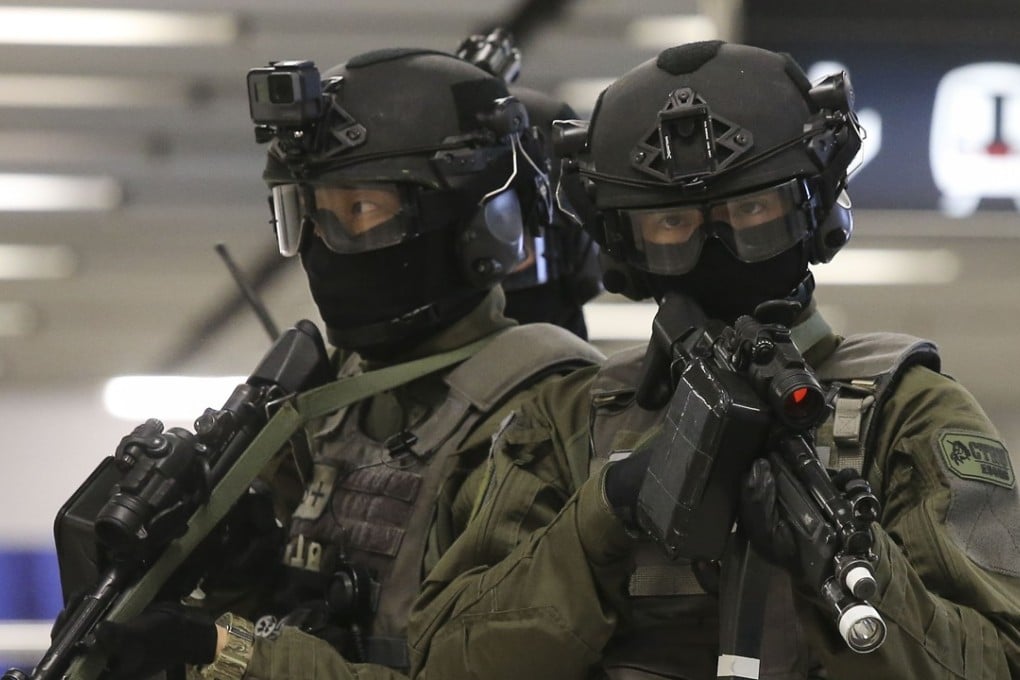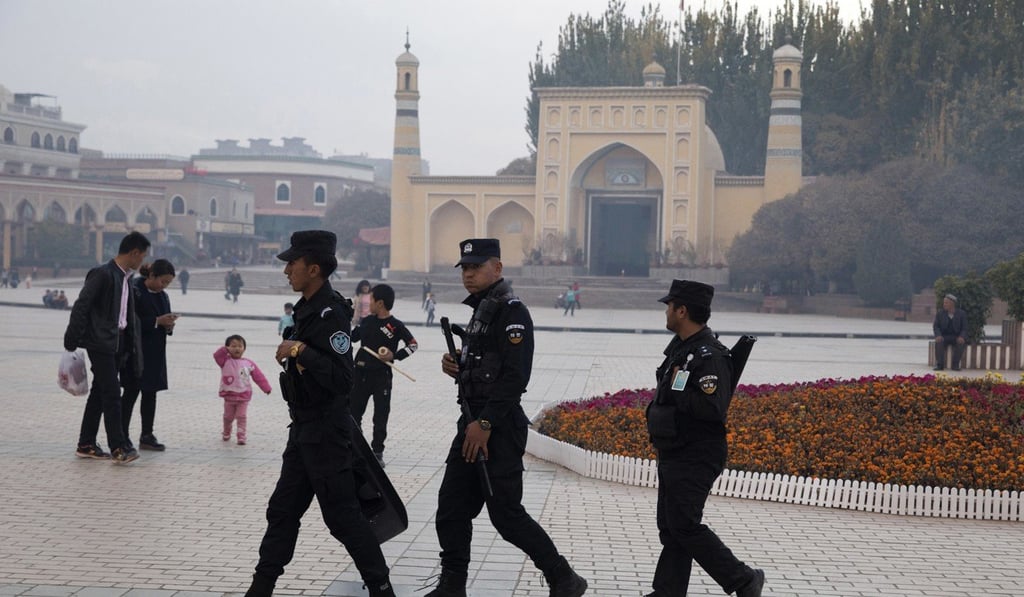Hong Kong’s anti-terrorism task force goes to Xinjiang to study local methods, as China rejects international calls to investigate mass internment centres
- Government source tells the Post the visit does not mean Hong Kong supports the controversial detention centres or will be drawing inspiration from them
- Delegation from Hong Kong is particularly interested in how Xinjiang authorities execute a rapid response to terrorist attacks

Hong Kong’s anti-terrorism task force headed to China’s northwestern region of Xinjiang on Thursday to study how its counterpart there has tackled extremists, the Post has learned. The visit takes place against the backdrop of international calls to investigate mass internment centres for Muslim minorities in the region.
But a government source stressed the move did not mean Hong Kong supported such centres, or that it would be borrowing ideas from them, as the local contexts were different.
“Xinjiang is, among all places, where China has vowed the most to fight against terrorism. It is therefore a good place for us to learn how officers there have gathered intelligence and protected facilities,” the insider said.
“The controversial re-education centres are among the measures used but that doesn’t mean Hong Kong should borrow the idea. As a matter of fact, we have no such needs due to the differences in terrorism situations we each face.”

The Post understood that deputy security minister Sonny Au Chi-kwong was leading seven members from the Interdepartmental Counterterrorism Unit, established in April, to visit the province for five days to study its counterterrorism measures and facilities.